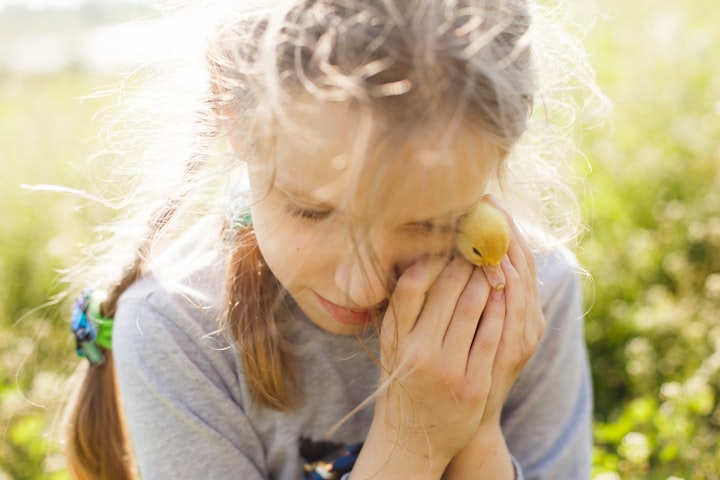Attention Special Education Teachers: Forcing Autistic Children to Socialize Can Be Dangerous
Forced friendships aren't friendships at all.

Autistic children often have trauma around socializing with their peers, so even though it’s a common goal in a classroom with autistic children to learn to socialize, it should never be forced. Forcing a child to interact with and spend time with other kids can worsen their social phobia, cause emotional dysregulation, and trigger meltdowns–and, it can be downright dangerous.
Autistic Children Can Sense the Dislike of Others
A study published in 2016 sheds some validating insight into why autistic children may be so reluctant to socialize with neurotypical children (and it isn’t just about the neurodivergent need to rest and decompress).
Their instinctual fear may stem from the fact that it has been scientifically proven that neurotypical people view autistic people in a negative light almost immediately upon meeting them based on ‘thin-slice judgments’.
In this study, neurotypical and autistic participants interacted with one another, but the neurotypical person wasn’t told their conversation partner was autistic.
The neurotypical participants were asked to judge their conversation partner on 3 basic factors:
- “How socially awkward is this person?”
- “How approachable is this person?”
- “Would I see myself being friends with this person?”
Quote from the study:
“Across all three rating categories, individuals with ASD were rated less favorably than TD [typically-developing] controls. Individuals who scored high on awkwardness scored low on approachability and friendship, and vice versa.”
Given these findings, it stands to reason that autistic children would be uncomfortable being forced into social situations with their neurotypical counterparts–especially since they’ve already been unfavorably judged by them within seconds.
Forced Socialization Can Lead to Bullying
Aside from being an awkward and uncomfortable experience, being forced to socialize can also put autistic children in danger of being bullied.
And I don’t mean being ignored or called names by a couple of mean kids on the playground–I’m talking months of physical and emotional torment perpetrated by groups of kids who feed off one another’s dislike of the “weird” kid until their actions escalate far beyond bullying and into the category of malicious abuse.
Keep in mind that when you tell your autistic student to “Go play with the other kids” or “Go work with other kids”, many of them experience the same fear response as if you’d said, “Go jump into a nest of spiders”.
If part of the child’s Individual Education Plan (IEP) is to socialize with others, and that’s a goal everyone agrees on (including the child), start slowly. Avoid just dropping the child into the mix during recess or gym class or forcing them into a group of established friends for a class project.
Instead, plan structured activities with one other child with a para or teacher present who can intervene during a conflict, translate miscommunication, and be there as a support system for both children.
If the interaction goes well, gradually increase time together with this other student until trust is established between them. Only then should another child be introduced.
Also, never tell an autistic child they are being “rude” because they are afraid to socialize, don’t feel any need to socialize, or don’t socialize the way neurotypical children do. This will only cause confusion and shame, further traumatize the autistic child, and make them even more reluctant to be around others.
Instead, listen to the child and allow them to freely express their concerns and fears while validating their experience. A child who is terrified of their neurotypical peers will not suddenly get over that fear by being forced into their company.
The Takeaway
When working with autistic students, it’s important to prioritize safety and comfort above social goals. In fact, learning to socialize in a neurotypical way should never be a goal for an autistic child. Instead, with the help of caring educators, children of both neurotypes should be encouraged to learn each other’s way of playing, interacting, and communicating–because that is what encourages the development of genuine social connections!
Looking for more tips on how to best accommodate your autistic students? My colleague, Katherine T. Lorelli, is a former SPED paraprofessional who offers private consultations and mentorship for teachers, paraprofessionals, parents, and students. Click here to book her today!
About the Creator
The Articulate Autistic
I'm a late-diagnosed autistic/ADHD woman who translates autistic communication, behavior, and intentions through comprehensive writing and one-to-one consultations.






Comments (1)
“In fact, learning to socialize in a neurotypical way should never be a goal for an autistic child.” Spot on! The double empathy problem greatly needs to be addressed. Your point about involving children in formation of their social goals and getting their consent/agreement is extremely important. The neurodiversity movement is bringing much to the table on behalf of autistics so they can be heard. Teachers, parents, professionals, family members, and friends need to listen and engage in discourse with the children and dispense with the idea that as adults they know best.